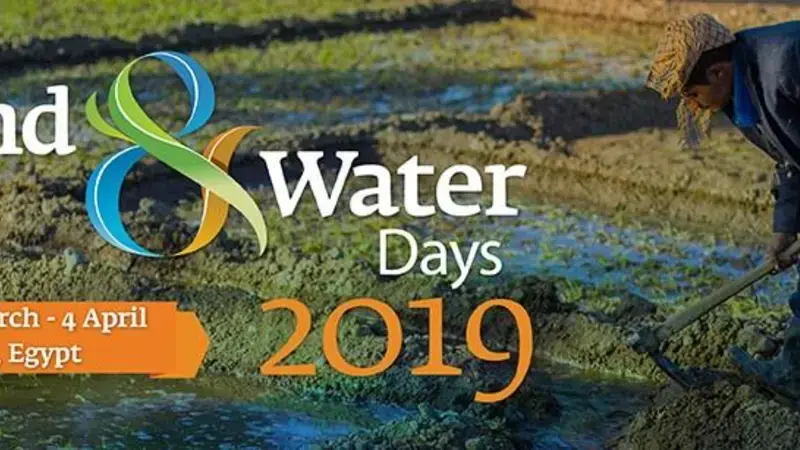Land Degradation: Monitoring across scales

ICARDA at the NENA Land & Water Days on 2 April 2019: With this session ICARDA and partners tackle the monitoring of Land Degradation (LD) at different scales, with an emphasis on status and trend assessment in a Land Degradation Neutrality (LDN) context. The session will serve as a platform for stakeholders to share and discuss LD issues and pathways towards streamlined evaluation procedures - from scattered field surveys to harmonized Earth Observation information.
The Near East and North Africa (NENA) focus will foster dialogue on the region’s uniqueness and limitations, predominately in water, but also soil fertility and land cover, to further elaborate conflicts between land productivity, on the one hand, and protection and restoration efforts on the other. Case studies from dry areas in the NENA region will introduce land and water management initiatives and monitoring methods undertaken with the participation of local communities, setting the scene for an interactive session on community interventions and assessments towards achieving national LDN targets.
The context
Water scarcity and limited arable land availability throughout the NENA region threaten both the region’s economy and its vulnerable dryland agro-ecosystems. Accelerated natural resource exploitation, driven by the growing demands of society is inevitably linked with LD. As such, NENA landscapes have become increasingly transformed, depleted, and eroded, particularly in recent decades.
As a part of Decision 3 taken at the 12th session of the Conference of the Parties of the UNCCD (COP12) a foundation was set for decelerating and neutralizing these negative trends, and approaching LDN, a concept which aims to avoid, reduce, and/or reverse LD in order to achieve zero net loss in healthy and productive land. To date, 110 countries have engaged with this initiative, striving for the LDN goals set for 2030. Partner countries commit subsequent assessments of the proportion of land that is degraded, while the LDN sub-indicators tackle, primarily, land productivity, carbon stocks and land cover changes.
The LDN global initiative provides tremendous background and support for effective monitoring, through for example, harmonized Earth Observation (EO) products (Tier 1), available via PRAIS portal. The UNCCD published ‘Good Practice Guidance’ and various other support tools and tutorials. However, the LDN concept predicts that national data and statistics (Tier 2), and field survey and modeling (Tier 3), will be increasingly used for assessments and ground truthing. This approach enables national authorities to use different methods, according to their resources and capacities.
The adoption of available tools, fine-tuning, and handling across scales requires lively interaction, feedback, and updates among partners. In particular, national and sub-national scale data (Tier 2 and Tier 3) require expertise and consensus. This technical session is designed to serve this purpose.
With this session, the organizers wish to continue the dialogue on LD monitoring and LDN assessment practices across scales, and reach out to a wide range of stakeholders - from local communities to policymakers.
The session will, in particular, link country-level targets with landscape to community level interventions and monitoring. Case studies from the NENA region will feed discussions on LD counter-measures and impacts at scale and how to translate results into sub-national and national targets.
The session will also connect stakeholders from various levels and provide an opportunity to exchange on different (Tier1-3) monitoring approaches and data usage, and share concepts to further strengthen LDN monitoring concepts.
For more information about the session: [email protected]
For more information about ICARDA: [email protected]
